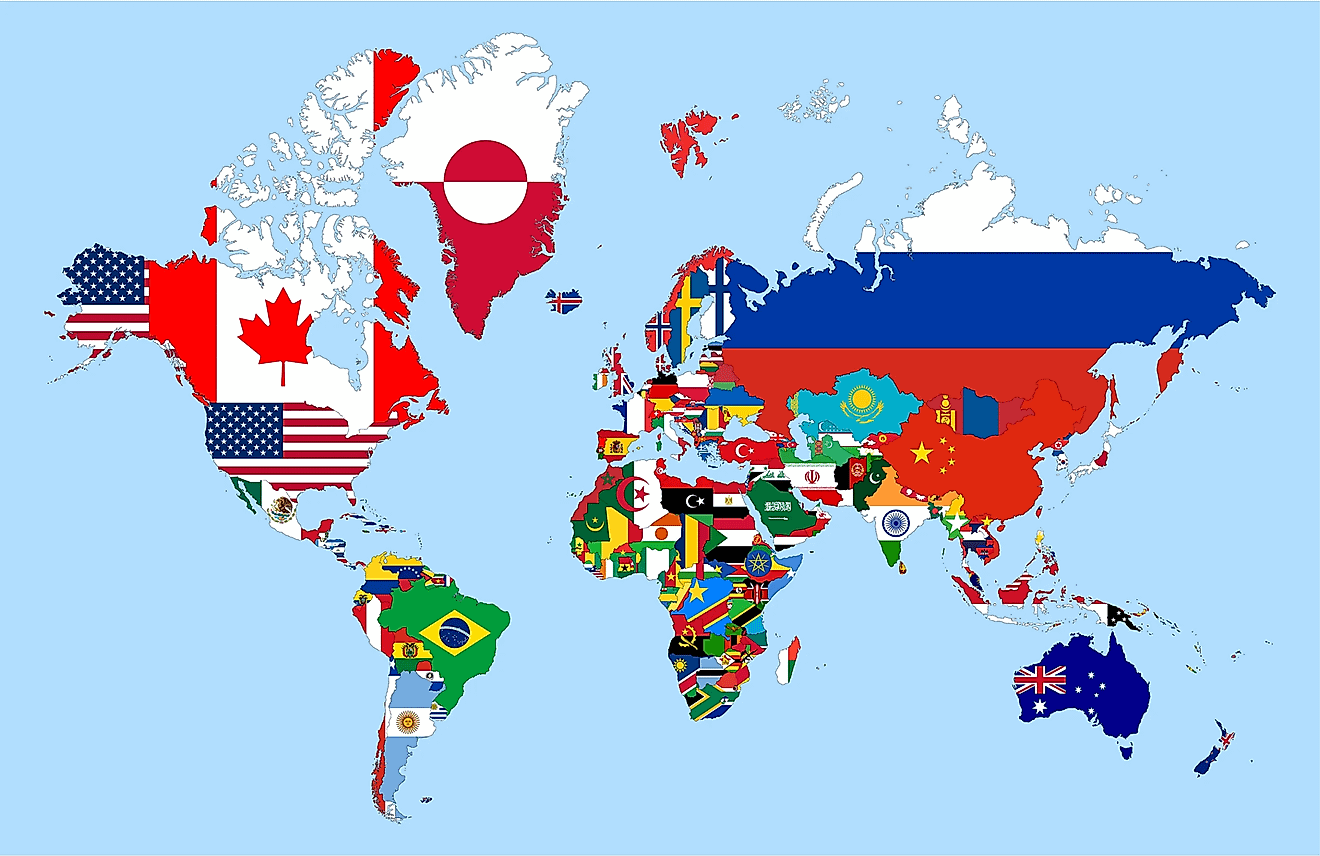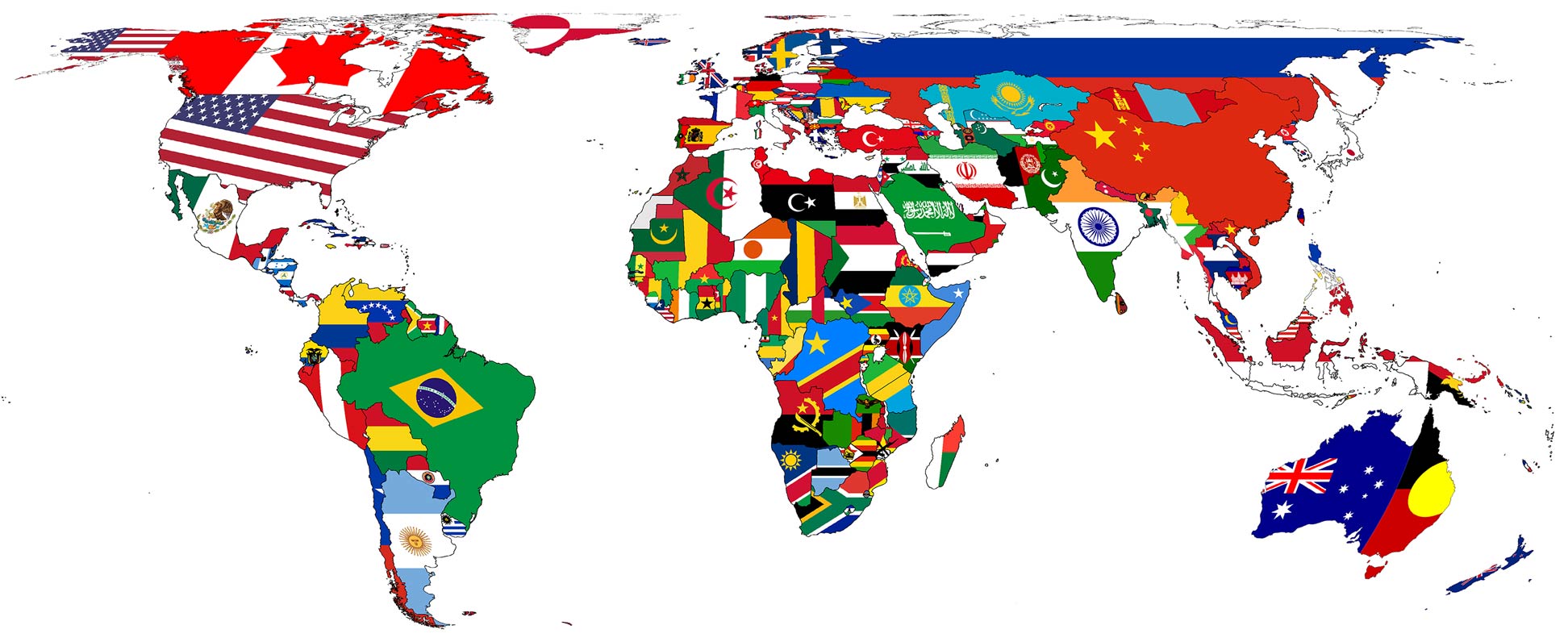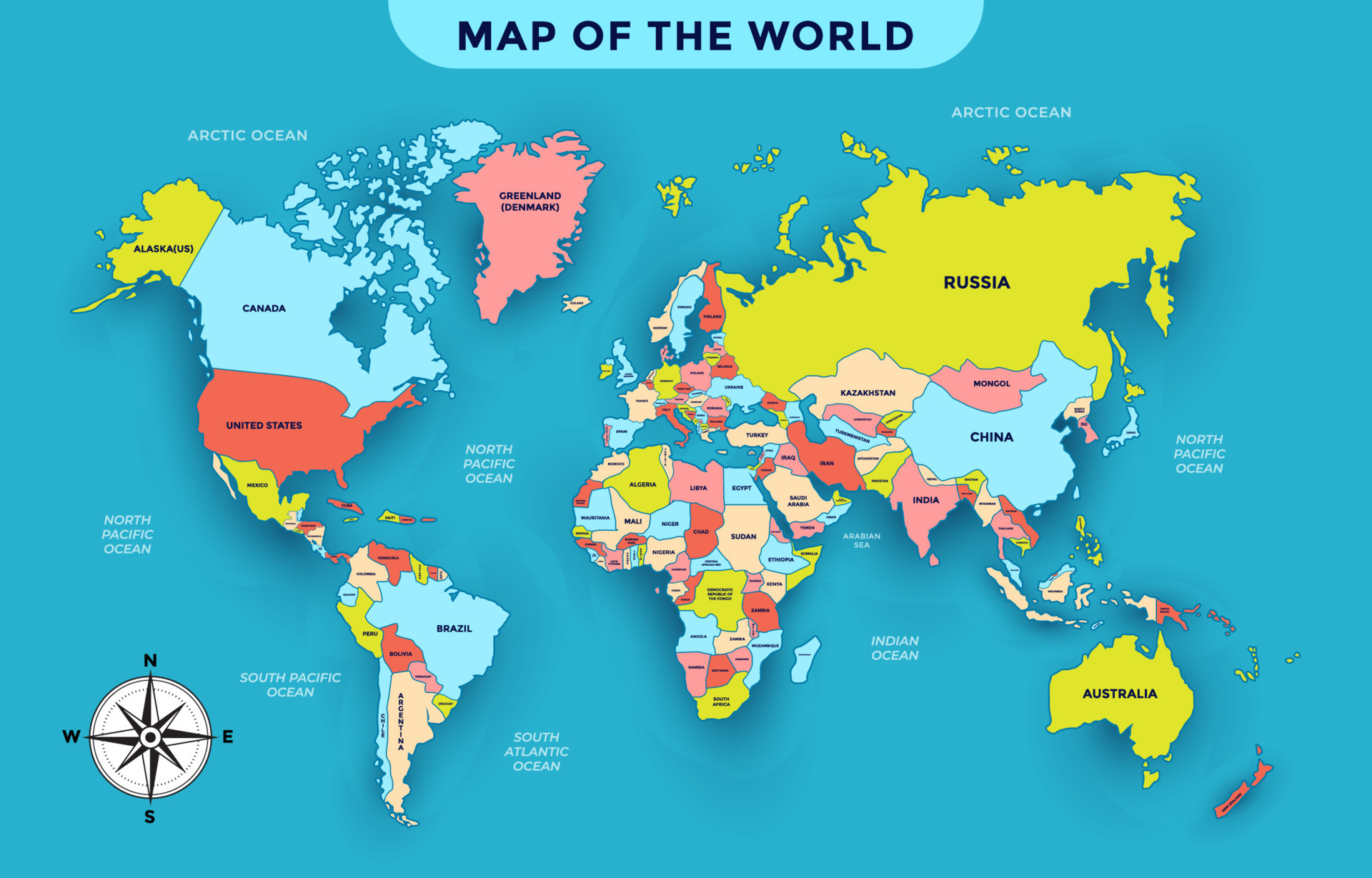Unpacking "Country": What "Country Goam DTI" Really Means Today
The word "country," you know, carries, in a way, very little sovereign meaning in some contexts, which is rather interesting to think about. When we talk about "sovereign states" in international law, they're typically called "State" or "sovereign state" in English, which is, well, a bit different. This distinction is actually quite important, especially when you consider how global interactions happen every single day, and how different places are identified. It's a subtle but powerful difference that shapes how we see borders, identities, and even digital access.
It's not just about geography; it's about how language shapes our perceptions of authority and belonging. For instance, if you look at the United Kingdom, the place where English, you know, first began, their government's official website will tell you that the UK is, actually, made up of four "countries." This shows how the term "country" can mean something other than a fully independent, sovereign entity, which is, you know, something many people don't often consider.
So, when we talk about something like "country goam dti," it really prompts us to look deeper into what "country" truly signifies in various situations. Whether it's about a specific region, a digital service restriction, or maybe even, like, trade regulations, the exact definition of "country" can make all the difference. This exploration helps us better grasp the complexities of a connected world, where words, you know, have layers of meaning that can impact a whole lot of things.
Table of Contents
- Understanding the Word "Country": More Than Just Borders
- "State," "Nation," and "Country": Making Sense of the Differences
- Digital Boundaries: How "Country" Definitions Impact Online Life
- Addressing the World: "Country" in Translation
- "Country" as Culture and Identity: The CH Phenomenon
- The Goam DTI Context: Why Definitions Matter
- Frequently Asked Questions About Country Definitions
Understanding the Word "Country": More Than Just Borders
The word "country" is, well, a bit of a chameleon in the English language, actually. Many people think of it as always meaning a fully independent, sovereign nation, but that's not always the case, you know. For instance, some overseas brands, when they let you pick your region, they list places like Hong Kong (HK) and Taiwan (TW) separately, almost as if they were, you know, independent countries in that particular context. This can be quite confusing if you're only thinking about the strict international law definition.
It turns out, if you look in some dictionaries, like the Oxford Advanced Learner's Dictionary, you might find that "country" can, indeed, refer to a region or an area, which is pretty interesting. This shows that the meaning of the word can shift quite a bit depending on how it's being used. So, in a wider sense, a "country" might also mean, like, groups of people with some freedom and their own way of life, but still, you know, under the rule of another state. This nuance is very important for a lot of reasons, especially in a world that's so interconnected.
Consider the UK again; it's a single "country," yet within it are four distinct "countries" – England, Scotland, Wales, and Northern Ireland. This example, you know, really highlights how "country" can describe both a larger political entity and its constituent parts, which have their own unique identities and, sometimes, their own systems. It's a complex idea, isn't it? This flexible meaning of "country" means that when we encounter a phrase like "country goam dti," we need to consider the specific situation to really grasp its meaning, and that's, like, a key point.
"State," "Nation," and "Country": Making Sense of the Differences
The words "state," "nation," and "country" often get used interchangeably, but they actually, you know, have distinct meanings, especially in formal discussions. A "State," with a capital 'S', typically refers to a political entity that has a defined territory, a permanent population, a government, and the capacity to enter into relations with other states. This is the term, you know, that international law often uses when it talks about sovereign powers. So, for example, the United Nations is called the United "Nations," but its members are sovereign "States," which is, well, a bit of a linguistic puzzle.
A "nation," on the other hand, usually refers to a group of people who share a common culture, language, history, or ethnicity, and who feel a sense of collective identity. A nation might not have its own independent state, you see. For example, Cameron once said, "Four nations in one country," referring to the United Kingdom. In that statement, Britain is the "country," but Scotland, Wales, England, and Northern Ireland are considered "nations" within it, which is, you know, a very clear distinction.
So, "country" can be the most flexible of the three. It can mean a sovereign state, or it can mean a geographical area, or even a cultural region, like the "nations" within the UK. This flexibility is what makes it, you know, sometimes a bit tricky to define precisely without more context. When we think about "country goam dti," we have to ask: is "Goam" a sovereign state, a nation, or perhaps a region that falls under a broader "country" definition for DTI purposes? This kind of question is, like, pretty important for clarity.
Digital Boundaries: How "Country" Definitions Impact Online Life
It's fascinating how the concept of "country" extends into our digital lives, often in ways we don't, you know, immediately notice. The definition of a "country" can directly affect what online services you can access, the content you see, and even how your data is handled. This is particularly true when it comes to things like geo-blocking or regional restrictions, which are, you know, pretty common online.
IP Location and Access Issues
One common way "country" definitions play out online is through IP address location. Websites and online services often try to figure out where you are based on your IP address. If you've ever run into problems like not being able to get to the Gemini website, or maybe seeing a message that Gemini just doesn't support your area, that's, well, often because of how your IP is being identified. Figuring out if your IP address is, perhaps, marked by Google as being from China (the "send back to China" issue) is a way people try to troubleshoot these kinds of access problems, and it's, like, a real thing.
These systems use databases that map IP ranges to specific geographic locations, including countries. But these mappings aren't always perfect, and sometimes, you know, they can lead to misidentifications. This means that even if you are physically in one place, your online presence might appear to be in another "country" to these systems, which can be, well, quite frustrating. It highlights how digital "country" boundaries can be, like, pretty fluid and sometimes inaccurate, impacting your ability to use services.
Streaming and Service Restrictions
Another common scenario where "country" definitions matter is with streaming services or apps like Spotify. Have you ever run into a "wrong country settings accesspoint:17" problem when trying to log into Spotify? This issue, you know, happens because these services often have licensing agreements or regional content libraries that are tied to specific countries. If the service thinks you're in a different "country" than where your account is registered, or where the content is licensed, it might just, well, block your access.
These restrictions are a direct result of how "country" is defined for business and legal purposes in the digital world. It means that the precise geographical location and the associated legal framework of a "country" are, actually, quite important for how online content is distributed and consumed. So, when we talk about "country goam dti," if "DTI" involves digital services or data, the "country" definition for "Goam" would be, you know, very important for compliance and user access.
Addressing the World: "Country" in Translation
Even something as seemingly simple as writing an address shows how "country" definitions and cultural norms differ. When you write an address in Chinese, you know, the arrangement is typically from big to small. So, you start with the country, then the province, then the city, and so on, down to the house number. It's a very logical flow, actually, from the broadest to the most specific detail.
English addresses, on the other hand, are the opposite. They go from small to big. You start with the house number, then the street, then the district, and eventually, you know, the city, state (if applicable), and finally the country. This difference in order, while seemingly minor, reflects different ways of organizing information and, well, thinking about location. It also means that when you're translating an address, you need to be very mindful of the "country" context to get the order right, which is, like, pretty important for mail delivery.
This simple act of address translation underscores that "country" isn't just a political boundary; it's also a cultural and linguistic one. The way a "country" organizes its addresses is, in a way, a small window into its broader cultural patterns. So, if "country goam dti" involved, say, international mail or shipping, understanding these subtle differences in how "country" information is structured would be, you know, absolutely essential for smooth operations.
"Country" as Culture and Identity: The CH Phenomenon
Beyond the formal definitions, "country" also has a strong connection to culture and identity, often in very creative ways. Take "CH," which stands for Countryhumans, for instance. This is, actually, a community that came from YouTube where countries are, like, made into people. It's a fascinating example of how people interpret and personify "countries" in a non-political, more cultural sense.
In this community, countries are often pictured as "ball-headed people" or, you know, "beings with national flags drawn on their heads." While there isn't one single way to imagine these characters, some common traits are widely adopted, which is pretty neat. This phenomenon shows how "countries" are not just abstract political entities but also, in a way, living, breathing concepts in popular culture, full of personality and, well, a bit of whimsy.
This creative interpretation of "country" highlights the deep emotional and cultural ties people have to their homelands, or to the places they identify with. It's a reminder that "country" is also about shared stories, symbols, and a sense of belonging, which is, you know, a very human aspect. So, when we consider "country goam dti," it's not just about legal definitions; it could also touch upon the cultural identity that "Goam" might represent to its people, and how that influences any "DTI" initiatives.
The Goam DTI Context: Why Definitions Matter
So, bringing it all back to "country goam dti," the preceding discussions make it pretty clear why the exact meaning of "country" is, you know, so incredibly important here. If "Goam" refers to a specific geographic area, its status as a "country" – whether it's a fully sovereign "State," a "nation" within a larger "country," or a region with some autonomy – would deeply influence any "DTI" initiatives. "DTI" could stand for many things, perhaps a Department of Trade and Industry, or maybe even a Data Transfer Initiative, but in any case, the "country" context is key.
For example, if "DTI" is about trade, then understanding if "Goam" can enter into its own trade agreements, or if it's subject to the trade policies of a larger "country," is, well, absolutely vital. This distinction affects tariffs, import/export regulations, and, you know, how businesses operate. Similarly, if "DTI" involves data, then the "country" status of "Goam" would determine which data privacy laws apply, where data can be stored, and how it can be transferred across borders, which is, like, a huge deal in today's world.
The nuances of "country" definitions, as we've explored, are not just academic points. They have real-world implications for businesses, individuals, and governments. Whether it's about accessing online services, sending mail, or, you know, setting up trade agreements, the precise understanding of what "country" means in a given situation is, actually, a fundamental building block. So, for "country goam dti," getting that definition right is, like, the very first step to success.
Frequently Asked Questions About Country Definitions
Here are some common questions people often have about the meaning of "country" and related terms:
Does the word "country" always mean a sovereign state?
Not always, you know. While "country" can mean a sovereign state, it can also refer to a geographical region, a cultural area, or even, like, a constituent part of a larger political entity. For example, the UK has four "countries" within it, which are not, you know, sovereign states on their own. The meaning often depends on the specific situation, which is, well, something to keep in mind.
Why do some online services say I'm in the "wrong country" even if I'm home?
This often happens because online services use your IP address to figure out your location, and sometimes these IP-to-location databases can be, you know, a bit off. Your IP might be incorrectly mapped to a different "country," or maybe your internet service provider routes your connection through a server in another region. So, the service thinks you're in a place you're not, which is, like, pretty annoying.
What's the main difference between a "State" and a "nation"?
A "State" (with a capital 'S') is, typically, a political entity with defined borders, a government, and the ability to act independently on the world stage, which is, you know, a very formal definition. A "nation," on the other hand, is a group of people who share a common culture, history, or identity, regardless of whether they have their own independent state. So, a "State" is about political structure, while a "nation" is about shared identity, which is, well, a key distinction.
Learn more about country definitions on our site, and link to this page for deeper insights into global identities.

How Many Countries Are There In The World 2023 - PELAJARAN

A-Z list of Countries and Regions in the World :: Nations Online Project

World Map with Country Names 20833849 Vector Art at Vecteezy